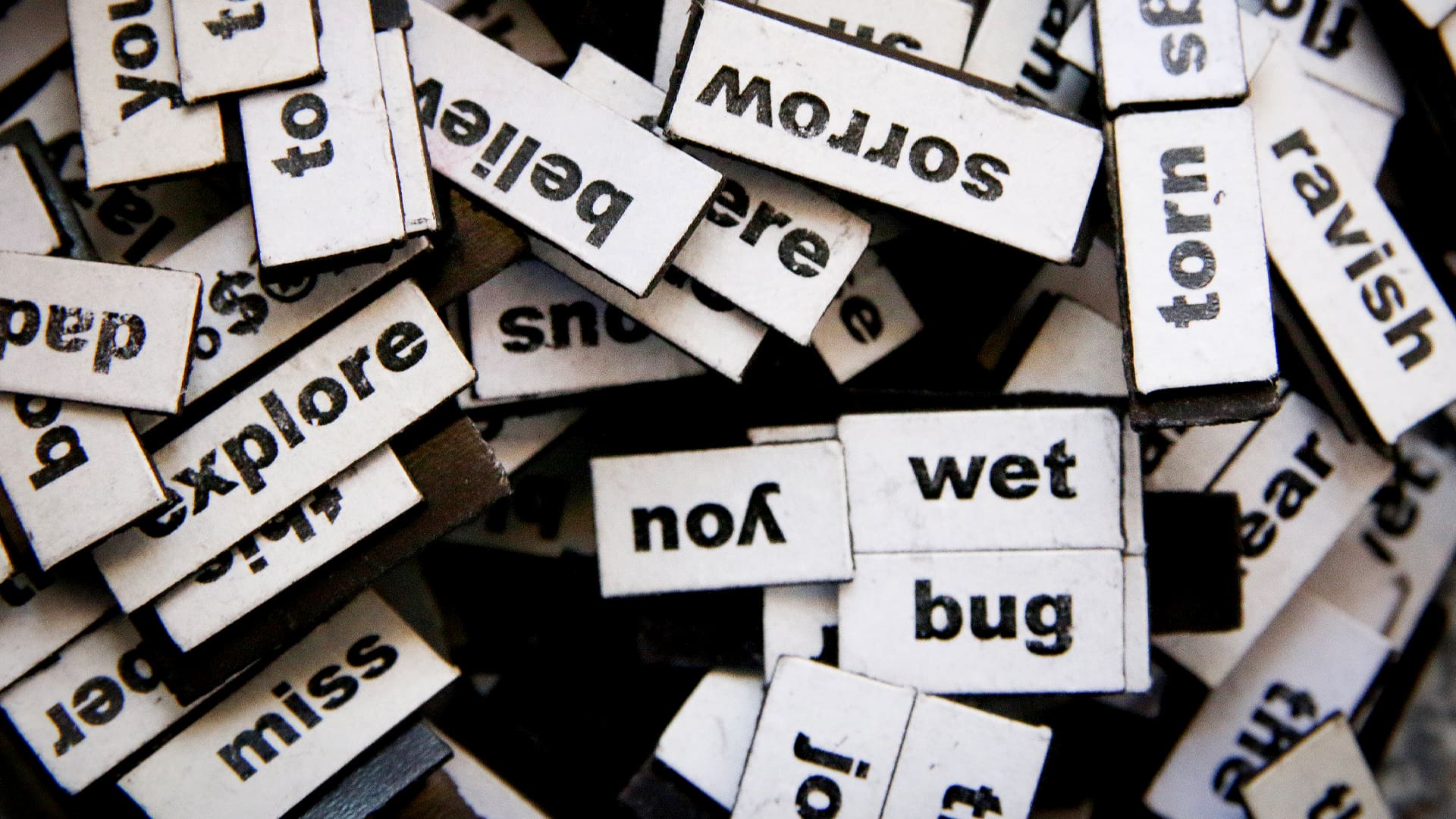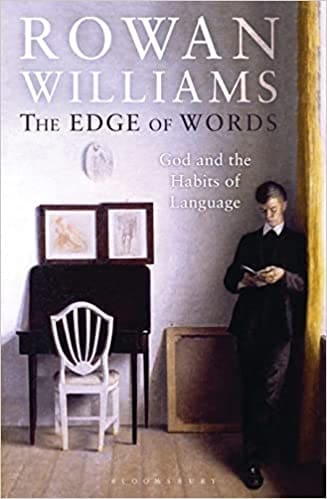I
It’s Advent, and we wait with eager anticipation to hear the good news that Christ, the Word, entered the World. Yet it’s often during this season—when our neighbours give puzzled looks after we tell them how many times we’re trundling off to some worship service or carol sing—that we feel an increased pressure to share our excitement with them. Christ’s story is just about to begin, and we hear echoes of the commission ending it, a commission that sounds all year round telling us to go out and proclaim this good news to all. Christ’s final directives to his fledgling church are really nothing less than the invitation to participate in the events to which Advent points: the Word must continue entering the world.
But outside the comforts of church—the community that speaks our language—this is tough work. So when we talk about God, we do so mutedly and usually only in the confidence of our private sacred spaces. If we’re going to regain our confidence in finding words for God in public places we need a new way of thinking about language.
That is the theme of Rowan Williams’s recently published Gifford Lectures, The Edge of Words: God and the Habits of Language, an indispensable aid for anyone desiring—or struggling—to talk about God publicly. By paying closer attention to what we do when we speak, Williams clears the ground of some of our default attitudes about language and begins to erect a new structure, one in which talk about God might not just be for those religious eccentrics at the margins of the public square.
Words that Go Out
Since the Gifford Lectures are devoted to natural theology—the attempt to find God without recourse to Scripture’s special revelation—it’s no surprise that there is an apologetic thread pointing to God’s existence tentatively woven throughout William’s argument. But it’s a very tentative thread indeed. And if you’re going to read this book in order to find ways to make God such an indisputable fact that not even the staunchest of unbelievers could withstand Him, then this book will let you down.
What’s more interesting for Williams is the curious fact we dispute anything at all. If language is merely descriptive (or what philosophers might call “realist”) then once all the labels have been affixed to their objects, we’re done. The game is up. But experience shows us that the case is never closed; there really are no last words. The world in which we find ourselves seems to continuously demand more and more words in seemingly endless rhythms of question and answer, point and counterpoint, call and response. You might already hear the echoes of a liturgy here, and you’d be right. But more to the point: you might also already see the dim shadow of the ideal public square, one in which many “communities of speakers” are engaged in the cacophonous, conflicted, difficult, always-incomplete work of searching out the best words, best ideas, and best ways to live in this world together.
Why is talking seemingly endless? One reason is that our words—even the best of them—almost always fail to fully “speak for” reality. Rather than merely labelling the cosmos, our words go out in exploration of it, make sense of it, expand it, construct and deconstruct and reconstruct it, and ultimately mediate it so that it becomes increasingly “usable” (or significant) to us and others. But at the end of all this exploration, we realize we’ve only just begun. So we go on talking.
And even if you have a cynical take on all the ceaseless blather of our politicians, theologians, and—worst of all?—academics, it turns out the only way to upend the whole shebang is to employ more words. But in that act, you’ve now become part of the play. So you can resist and criticize our conversations, but, as Williams suggests, what might be more fun is to step back and see just what our ineluctable capacity for seeking words might say about who we are, what kind of world this is, and just Who exactly might be responsible for it.
The Right Words for God
How does this help us find the right words for God in public? First we have to think of words not just as the sticky-note labels we attach to “things.” A basic example might help clarify things here. When we see a cat and call it “cat,” we still must go on talking: the cat is adorable, annoying, quick, young, soft, agile, temperamental, filthy. We could add: the cat is tricky as a fox, has fleecy fur, and is a regular mother hen. The examples here are not particularly creative, but they show the point: our words rely on exchanges of pattern, metaphors, and analogies, to make this something—this cat—meaningful. Far from being “useless” ornaments fit only for poets, metaphors and their ilk are the primary ways in which we symbol-using creatures can grasp this strange yet strangely intelligible world.
That we need metaphors for God is to acknowledge that we come to know him—if we ever do—in a similar manner that we come to know many other things in this world: through our words. It is no less “accurate,” then, to speak of God as “Rock, Lamb, Shepherd, Bread, King” than to use those well-worn categories that escape human comprehension completely: God as an “omniscient, omnipotent, omnipresent, Absolute Being.”
But so far this might seem like just a lot of insider-baseball, and even if we admit that metaphors for God are “credible,” it doesn’t help us share those metaphors with the majority of people who think they’re rubbish. But here—at the metaphorical heart of language—is one important clue as to how we might recover our confidence in using a publicly accessible language about God: we must use words that are relevant and meaningful to the ones with whom we speak.
You want to talk about God? Know your audience. Know where and when they are. Paul, a Jew to Jews and a Gentile to Gentiles, when he stood at Mars Hill—a Roman public square of sorts—boldly claimed he had the Name for their unknown god. And we can take our cues from the best poets, philosophers, and theologians who search out the words for God that resonate both with their audience’s deepest longings and with who God has revealed himself to be. It’s uncompromising compromise; it’s tough.
So who is our audience today? What language do they speak? What are the openings in their language into which we can say, “We have a Name for that nameless ‘something’ you seek”? Where are the silences into which our words might go out?
This is not only our hope as Christians. It’s our hope as those committed to a public square where we might persuade and be persuaded. Because if “God language” only belongs within the community who’ll agree to it, communities become unreachably insulated from one another and have no right—or means—to “impose” their language upon others. From such an attitude, the public square either can’t properly exist, or what’s more likely, it becomes a place increasingly hostile to groups who don’t share the majority’s vocabulary.
More than Words: Inviting Others In
The “limits” of our words also point to the communal aspect of communication. Look again at our cat example. We find that we are not only mysteriously summoned to create the word “cat,” but that its name only “works” when it is bound up in a shared community of speakers. If no one else uses the word, then the word fails. And whether as characters on a page, or sounds from a mouth, or movement of hands in sign language, or any other way we might embody the intelligibility of this world, our communication reveals a pervasive interdependence upon one another from which we can never fully remove ourselves. In fact, we all come into this world in the middle of conversations and symbol-systems we had no hand in making. Whether we like it or not, words point out that we are born indebted to one another.
The good news that Williams brings is that the communal, contingent, and interdependent features of our language need not be feared, but embraced. We don’t need to worry that language’s dependence on a shared community might lead to some form of relativism (although it can, and has); rather, we should appreciate that this is the only means through which we can come to know of the world, others, and even God.
And on the communal level, our words are rarely enough. To fully grasp a community’s diction, one must participate in the rituals which “place pressure” on those words, and make them strange, new, and alive. Williams makes much of this non-lingual aspect to our language. We repeat habits, practices, and bodily gestures in order to move us again and again to the edge of our words. Advent, as it comes and goes in the cycles of the year, is a season filled with rituals that repeatedly force us back to the words of the gospels and invite us to hear them again and again. And there is Lent, and Easter, and Communion, and Baptism, and congregational prayer, and the reading of the law, and so much more that we do as a “community of speakers” that help to reinforce our hold on our words. Really, the success of our secular culture in transforming our religious holidays into days of gluttonous materialism, is that they have largely dominated the battleground over this non-lingual aspect of our communication. And we’d be lying if we believed we were wholly immune from it. But the point is that it is through such practices that we fully realize how communication is not just a matter of mind, but an integral part of our embodied lives together.
And here, perhaps, is our greatest hope this Advent season. Maybe to go beyond some of our misdirected attitudes toward language, we have to realize that our words are not enough. Our words need to go out, to be sure, but other non-native speakers must be invited in. Because it’s one thing to hear words about God—as compelling and useful as our metaphors might be—but it’s quite another to see the candles lit, to hear a quavering senior sing Come Thou Fount, to taste the bread and drink the wine, to feel the board as you kneel to pray, to raise a hand, and to close your eyes and wait in the silence of a church in prayer.
And maybe it’s just in these moments that God, the elusive one whom Meister Eckhart believed contained all names while remaining nameless, comes to meet us. Maybe in silence, the pregnant pause where we realize that all our language is only struggling toward something it can’t ever fully contain, God reaches out (as He’s always done) to make that final act of communion.



